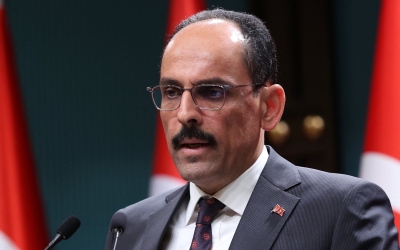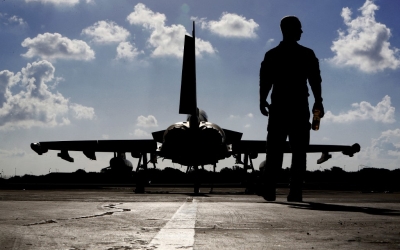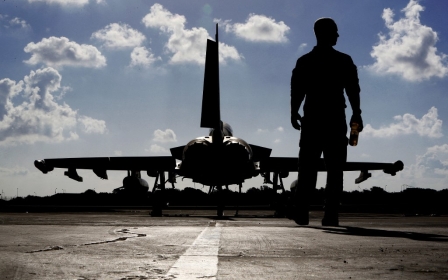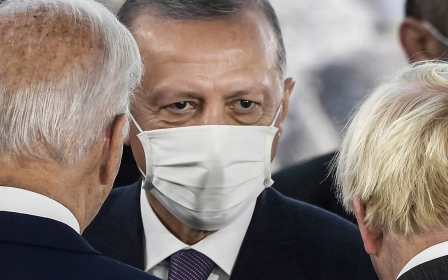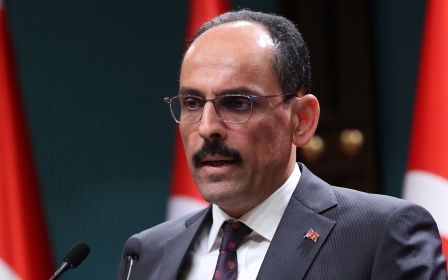Nato dispute: Senior British ministers in Turkey on charm offensive
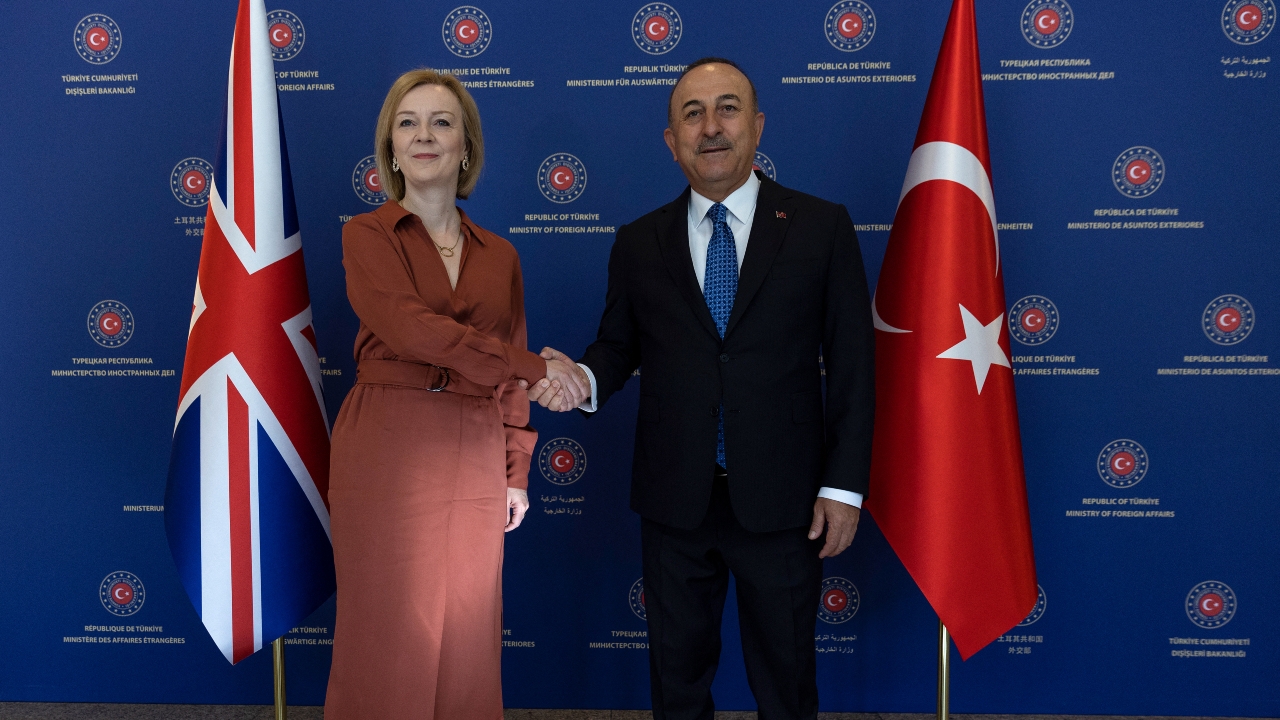
Two senior UK ministers are in Turkey this week seeking a way to convince Ankara to unblock its opposition to Sweden and Finland’s bid to join Nato.
Foreign Minister Liz Truss and Defence Minister Ben Wallace met with their Turkish counterparts on Thursday to discuss the issue, along with regional matters and defence co-operation.
Last month, Turkey called on Sweden and Finland to stop “supporting terror groups” if they did not want their Nato bids to be vetoed by Ankara, claiming Sweden was providing weapons to the Peoples' Protection Units (YPG) in Syria.
Turkey considers the YPG, and the Kurdistan Workers Party (PKK) to whom it is allied, as terrorist organisations and has been fighting against a PKK insurgency since 1984.
Despite the visit by the UK ministers, Turkish diplomatic sources say no progress on the issue is expected until a Nato summit to be held on 28-30 June in Madrid.
New MEE newsletter: Jerusalem Dispatch
Sign up to get the latest insights and analysis on Israel-Palestine, alongside Turkey Unpacked and other MEE newsletters
A source familiar with the ministers' visit told Middle East Eye that Wallace and Truss were visiting Ankara “to encourage Turks” to remain engaged in a problem-solving frame of mind to break the deadlock on Nato enlargement.
“Obviously we hope that all parties reach an agreement that allows Finland and Sweden to join,” the source added.
Turkey has asked both Finland and Sweden to extradite members of the PKK, stop funding the group, and lift their weapons restrictions on Turkey.
A high-level Turkish diplomatic source told MEE that the Finland dossier, which is seen as more positive and constructive in the eyes of the Turkish officials, was likely to be resolved easier than the Sweden one.
The diplomat pointed out that Sweden needs to consider its own Kurdish minority’s demands since they have an MP in parliament who gives support to the government.
The source said Finland did not have such domestic issues and unlike Sweden was not providing the YPG with heavy weapons.
Although Ankara has given the green light for Finland to at least take part in talks during the Madrid summit, Helsinki is aware that the negotiations will not be easy without the help of a third country.
UK ties
The third country could well be the UK since it enjoys strategic relations with Turkey that deepened after Brexit.
Both countries and their leaders have been very careful about not publicly criticising each other, avoiding any possible tensions through backdoor diplomacy.
Turkey is not ready to risk that relationship by ignoring London's efforts and rejecting any steps towards reconciliation.
The UK, according to other diplomatic sources who spoke to MEE, is aiming to make progress at least on the Finland dispute, in return for more bilateral defence co-operation.
Turkey and the UK already have close defence relations through their Nato partnership, as well as enjoying co-operation in the industrial field.
The British engine maker Rolls-Royce, and its local Turkish partner Kale, are expected to supply engines for Ankara's first indigenous fighter jet, the TF-X.
UK-based BAE Systems is also closely collaborating with Turkish Aerospace Industries in the development of the jet, including its stealth technology.
On Tuesday, ahead of the ministers' visit, Britain's Royal Air Force carried out joint air-to-air training with the Turkish Air Force as a part of a Nato bilateral training programme.
The exercise involved the RAF’s Eurofighter Typhoon aircraft and Turkish F-16s.
The Turkish government has shown a possible interest in buying Eurofighter Typhoon warplanes if its F-16 purchase request to the United States fails.
Sources at the UK foreign ministry told MEE that the possible sale of the fighter jets would not be a priority topic during the talks in Ankara, but if both countries agree on the sale at some point, it would be in the UK’s interest to sell the fighter jets to a fellow Nato country.
The sources also pointed out that the cold environmental trials of the fighter jets are held in Sweden, while the planes are a joint production effort involving the UK, Germany, Italy and Spain, all Nato countries.
Middle East Eye delivers independent and unrivalled coverage and analysis of the Middle East, North Africa and beyond. To learn more about republishing this content and the associated fees, please fill out this form. More about MEE can be found here.


